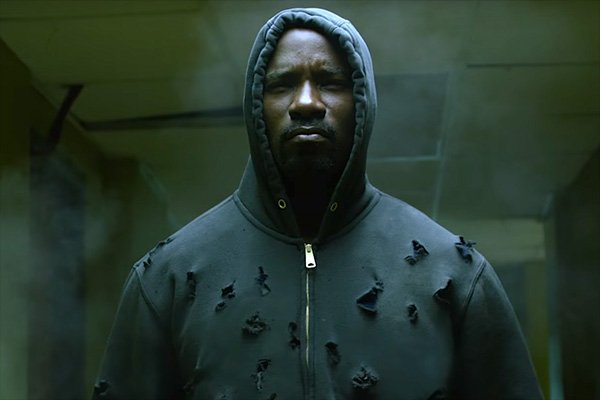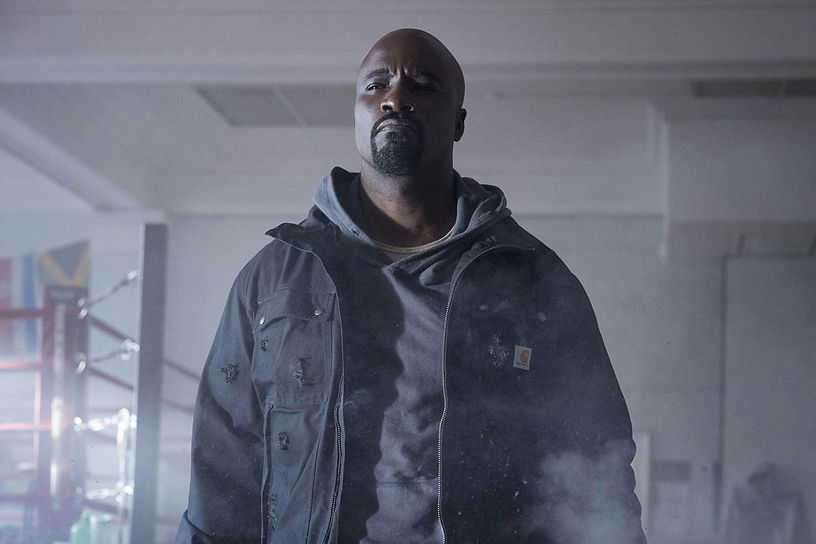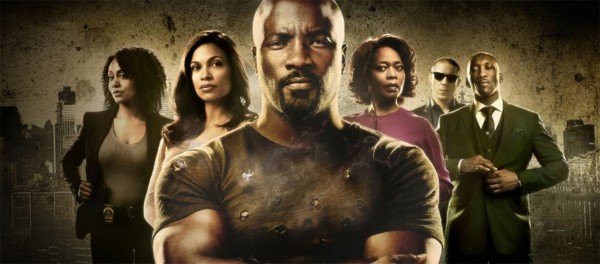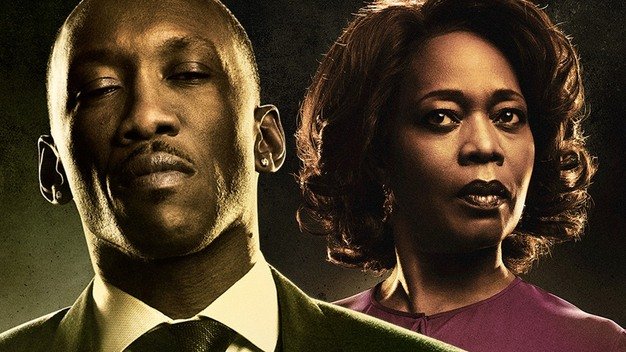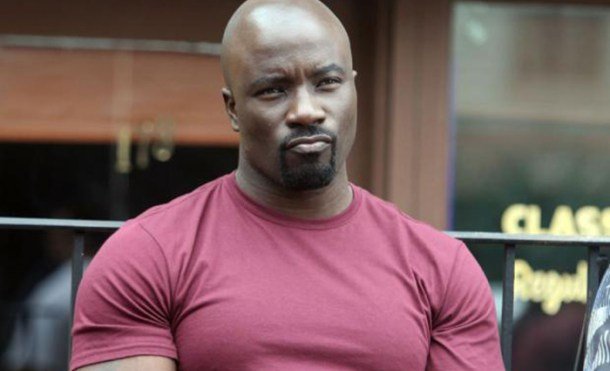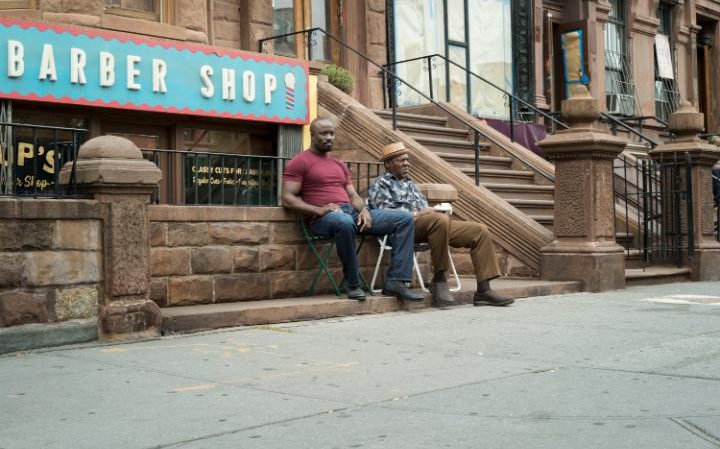Warning: There will be spoilers for Luke Cage in this column! There are also small spoilers for Daredevil and Jessica Jones.
Welcome back to the Weekly Nerd! So last week, Marvel and Netflix released Luke Cage’s first season. Like Daredevil and Jessica Jones, Luke Cage focuses on the titular character struggling through events in a section of New York. For Luke, his story picks up several months after the events of Jessica Jones. After recovering from a shotgun blast to the chin, he decided to run off to Harlem and try his best to blend in. As one who has never seen any TV show ever could guess, things don’t quite go as planned. With his super strength, unbreakable skin and his can-do attitude, Luke takes on the criminal element in Harlem.
Interestingly, Luke Cage tries to put the focus on the setting and the community. While I do think the show certainly pulls its punches in certain areas, there are others where they touched on the experiences of being black in a predominately black community. While watching the show, I noticed a few things that really made me think of black culture in North America and some other things that were glossed over. As an African Canadian who loves comic books, it was really interesting to see how the show handled these things. So let’s dive in, shall we?
Where’s My Money, Honey?
Luke Cage is born from a very different time period of American culture. First seen in 1972, the titular Hero for Hire made his debut during the height of Blaxploitation culture. Luke himself was very much a product of this genre. Luke was a street smart, shit talking bad ass who would take any job for the right price. Don’t think twice about reneging on your deal with him. He once invaded Latveria to take on Doctor Doom for skipping town before paying him for a job! Seriously, Luke likes his scratch.
Or at least he used to. The Luke we see in the show is a very different man. Interestingly, Luke is much more in line with a more modern take on the portrayal of strong black men in media. The Flash, Arrow, and Agents of S.H.I.E.L.D. all feature at least one central black character who bucks some stereotypes by being a lot more in tune with their emotions. Luke, while keeping to himself quite often, is often quiet and thoughtful, never acting out of rage and reluctant to stand out. There are overt references to Luke’s origins from Hero for Hire as many people offer to pay him for his services. In the show, he will always turn this down. Luke trades in his origins as a hustler for a much more selfless man who just wants to help people when he can.
There is an interesting moment between Luke and the wannabe gangbanger Shameek in a barber shop in episode one. Shameek is talking a big game and starts mocking Luke while trying to act like a baller. It is not uncommon for black men in media to start fights over petty squabbles. Luke does not get baited by Shameek, taking some sense of pride in his job sweeping hair and working hard. Luke does intimidate Shameek in the end, but only when the younger man tried to start a fight, and only then. He defuses things with words and presence, not with violence.
Also, Luke openly cries on-screen when Pops dies. Classic Luke would never be shown in such a vulnerable state, responding with anger rather than sadness. Luke is a man with many feelings. He is heartbroken over the loss of his wife. He is afraid of going back to prison, even though his skin is unbreakable. He would rather fly under the radar than get paid.
The Heart of Harlem
While Luke Cage’s portrayal of Harlem could use some work, they really do go to more lengths than Daredevil and Jessica Jones to give the show a sense of place. In Daredevil, our boy Murdock preaches a whole lot about how he wants to protect Hell’s Kitchen, but he is so far removed from that community. That may be one of the themes as he constantly alienates his friends. I never felt like he actually had anything to do with Hell’s Kitchen despite all the smackdowns he dishes out.
In Jessica Jones, the sullen private eye does her best to stay away from people because she is so traumatized. Because one of the themes of that show is the idea of not having a safe place, her version of Hell’s Kitchen is cold and unwelcoming. She builds a small group of supports, but they feel like they are trapped in a jungle of skyscrapers and concrete.
In Luke Cage, there is a sense of place. We see Luke walking around the streets talking to people and visiting recognizable areas. One that stuck out to me was Pop’s barber shop. When I was a kid, my dad would take me to a barber shop where he, the barber, and about four to five other black men would hang out and talk about politics, sports, the city and things going on in our respective countries of origin. 15 years later, I still go to the same barber shop. It is a place that many black people in Winnipeg know about, no matter when end of town you live in. When I saw Pop’s shop, I immediately recognized what was going on and how such a place can hold such importance.
More so than Daredevil, it feels like there are some stakes for a small group of people in a small area of town. Sure, the world is not being threatened, nor are there mystical ninjas looking for some McGuffin, but the lives of the people in Harlem are going to be affected. The criminal element bullies them and takes advantage of them, occasionally ending in their deaths or loss of things they hold dear. It probably sounds like I am throwing shade at Daredevil, but that is not the case, I am merely using it as a way to gauge the difference between being told about a community and seeing a community.
Luke, Cottonmouth, and Mariah all have stakes in Harlem and want to control things from different angles. Luke feels responsible for the people he has grown attached to. He at the very least wants to fix any issues he feels his presence has caused. Cottonmouth wants recognition and respect, using his money to prop himself up and make his club the true heart of Harlem. Mariah wants to be publicly recognized for building up the community legitimately… or at least she claims she does. It becomes clear that she cares more about her own image and power than she does about the community and the people in Harlem.
Community means something different to each of these titans. The main difference being how they approach it and where they see themselves fitting in. Luke, despite his literal power, is a man of the people and does not put himself above others. Cottonmouth and Mariah believe they deserve to be above others because they have power. They use their sway to exert power over others when they can. To them, the community owes them what they want, while Luke feels he owes the community.
Misty Knight gives another angle on the theme of community. It goes without saying that there is some incredible tension between law enforcement and the black community in the states. Misty is an amazing cross section of blackness and the law. Early in the show, she establishes herself as a part of the community by recognizing the fallen gangbangers and showing off her skills in the basketball court. Misty is not a woman to be taken lightly.
I absolutely love Misty. But I do feel there is a bit of a missed opportunity the portrayal of law enforcement in general. I could not help but notice that almost any instance of police violence toward black people in the show is perpetuated by a visible minority. I cannot help but say this is unforgivably toothless in a show where blackness is clearly a theme.
One could easily argue that the show is not political and that there is no message to be derived. While it is not up to the show to solve or even put a huge spotlight on the horrifying realities of police violence in America, it feels very stagey to have such violence shown in this way. I understand that Marvel Entertainment can be quite risk averse and likely wants to avoid major controversies, but something like having a white cop be the one to beat up Lonnie in Episode 10 rather than a black cop would be such a strong message.
The cop who hits Lonnie is likely not a bad person. He is a man who is scared, angry and feels powerless. He does something awful because of fear, which is something we see so often in our world today. To avoid such a thing is a misstep. OMG HE’S MAKING IT ABOUT RACE. This is a show about black people in Harlem. It is about race.
Words Matter
This show has a few different archetypes of blackness within Luke Cage. With that, there were a lot of different terms and colloquialisms that I recognized that I didn’t expect to hear in a Marvel show. Because of the prevalence of black culture in North America, accents, dialects, and cadences are very recognizable to a modern audience. It is cool that Marvel understands this and was able to embrace this. Now, while I do feel the dialogue is fairly shaky in some episodes, there is still some interesting stuff.
Luke Cage uses the word “nigger” quite often and unapologetically for authenticity. You will notice that only black people use the word, but there is a difference between who uses it and how it is used. Mariah talks about how she hates that word, but Cottonmouth uses it constantly as a regular way to talk to people and as a way to both empower and demean. Luke, on the other hand, makes it clear he does not like it when people call him a nigger. This is punctuated by the fact that it saddens him he is faced with a young black person who is not only demeaning him with the word but also not recognizing the importance of their current location as it relates to being black in the US.
Later on in the show Mariah is cornered and the facade of her prim and proper exterior are melting away, we get to see her true face. At these times, you may notice that her mannerisms, and the cadence of her speech changes. Her harsh upbringing and her negative view on the world are reflected in how she speaks and the way she addresses others. Earlier in the show, she states how she hates the word term nigger, but she uses it freely when she lets her true colours shine through.
Play it Again, Baby
Music is a huge part of Luke Cage. This may be one of the show’s greatest strengths. Each episode is actually named after Gang Starr songs. Hip hop, rap, and R&B are used liberally throughout the show. On top of this, we are treated to fantastic performances from artists within the show, giving the music an authenticity and poignancy that many tv shows could only dream of matching. We get Raphael Saadiq, Faith Evans, and Charles Bradley to name a few. Each one of the performances matches the tone of the episode and the current events perfectly. These songs are staples of American black music and the show would be an absolute shell of what it currently is without it. We even get an original song from Method Man! Playing himself! It is such a cool moment when the community comes together to support Luke, backed by this fantastic song.
Not only is the licensed music great, the original score is pretty clever as well. The style of the music is a clear call back to Blaxploitation music. It has an incredible old school feel to it and some motifs that almost foreshadow events. Each of the Marvel Netflix shows have a different style of background music that makes it unique from the others. It is a really smart move on Marvel’s part to release an official soundtrack for the show.
Sweet Christmas
Luke Cage impressed me in many ways about how unapologetically black it was. As a person who has been reading comic books since he was a child, Luke Cage was a part of that experience as there were no black superheroes quite like him. It was cool to see him in a TV show that made an effort to reflect certain aspects of black culture. I think the show did a great job in many areas but also has some room to improve in others. Either way, I am glad that Luke Cage embraced these aspects of blackness and I can’t wait to see what is next for him.
Nedu may or may not have sent Marvel some headshots in a desperate attempt to be cast as Luke Cage. He is also a content writer for AYBOnline. His views are his own.

